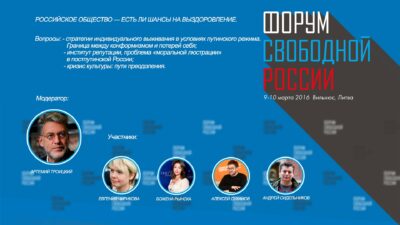Turkish President Recep Tayyip Erdogan has so far managed to maintain a balance in relations between Russia and the West. But the need to develop business ties with developed countries, as well as the blow to Vladimir Putin’s positions caused by the June rebellion of the Wagner PMC are forcing Erdogan to change his orientation.
After the war in Ukraine began, he did not support anti-Russian sanctions and allowed his country to make good money on them: Turkey increased supplies of its own goods to Russia, set up parallel imports for Russia, and increased sales of real estate and tourist services to Russians.
At the same time, the Turkish authorities partially went along with the United States and the European Union, which persuaded them to reduce cooperation with Russia – from restrictions in accepting Mir cards to closing routes for re-exporting dual-use goods.
But after Erdogan won the presidential election in May with little difficulty, he was faced with the need to fix the economy. The president has changed central bank governors several times in recent years, forbidding interest rate hikes despite high inflation (at 85% at the end of 2022). As a result, the Turkish lira has fallen by about 90% over the past five years. The current account deficit amounted to 5.4% of GDP in 2022.
Increased exports to Russia have not helped improve the foreign trade situation (the deficit was the highest since 2013), and he cannot do without developing cooperation with Western countries, with which Erdogan has clashed in recent years, fueling nationalist sentiments inside the country, experts say.
“There is an understanding that Turkey belongs to the West and its future in the medium term is linked to it”, Aydin Sezgin, a member of parliament and former Turkish ambassador to Russia, told The Wall Street Journal.
Erdogan has already appointed investor-favorite Mehmet Simsek as finance minister (he served as deputy prime minister and finance minister from 2009-2018), and the central bank has doubled the interest rate. On the foreign policy front, Erdogan has made a series of steps toward the West:
– after a year of objections, he agreed to Sweden’s entry into NATO;
– supported Ukraine’s admission, saying, “There is no doubt that Ukraine deserves to be a member of NATO”;
– met with Volodymyr Zelensky in Istanbul and without any explanation sent home the commanders of the Azov battalion, although under the terms of the prisoner-of-war exchange with Russia they were supposed to stay in Turkey until the end of hostilities;
– Turkey decided to provide Ukraine with T-155 Firtina self-propelled artillery units (the first case of providing heavy military equipment, previously only ammunition was supplied);
– there were signs of improving relations with the U.S., which refused to sell F-16 fighter jets to Turkey (this was due, among other things, to the dispute over Ankara’s purchase of Russian S-400 air defense systems). National Security Adviser Jake Sullivan said Tuesday that the White House supports the sale of F-16s, and at Joe Biden’s meeting with Erdogan in Vilnius a few hours later, the latter said: “Our meetings before this one were just a warm-up, and now we are starting a new process”. Meanwhile, back in March, Ankara talked about possibly abandoning the purchase of F-16s and acquiring fighter jets from other countries, including Russia;
Erdogan called for resuming Turkey’s EU accession process.
The president realizes that expanding cooperation with Russia alone will not solve the country’s economic problems, the WSJ writes, citing people familiar with Erdogan’s position and analysts. “There is a realization that Turkey has serious economic difficulties and [solving them] will require normalizing relations with its trade and financial partners”, says Sinan Ulgen, a former diplomat who now heads the Istanbul-based Edam think tank.
Erdogan believes that Putin’s position has weakened after Yevgeny Prigozhin’s mutiny, and this explains some of the president’s recent moves, Ulgen adds.
But Erdogan will not completely turn his back on Russia, experts believe. It will become more difficult to maintain the balance, but “Turkey will try to find a way to strengthen ties with the West without abandoning its special relationship with Russia”, says Gulru Gezer, a former senior diplomat who worked in Russia and the United States.
Moscow has no choice but to accept the situation as it is.
“Turkey is a member of the North Atlantic Alliance, Turkey has its obligations, Turkey is committed to its obligations. This has never been a secret for us, and we have never worn rose-colored glasses in this regard. This is how we treat [the decision to agree to Sweden’s NATO membership], in this respect we understand everything perfectly well”, presidential spokesman Dmitry Peskov told TASS yesterday. As for relations between Russia and Turkey, he said, “we have disagreements, we do not hide them either, but there is also that part of our relations which is absolutely in line with the interests of our two countries, which are important enough for us and important enough for the Turkish side itself”.





